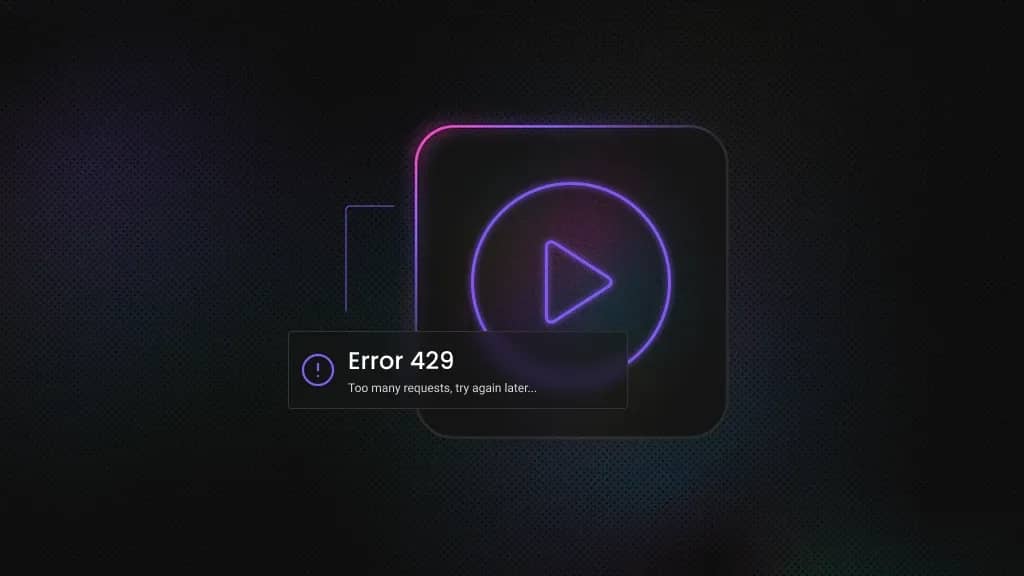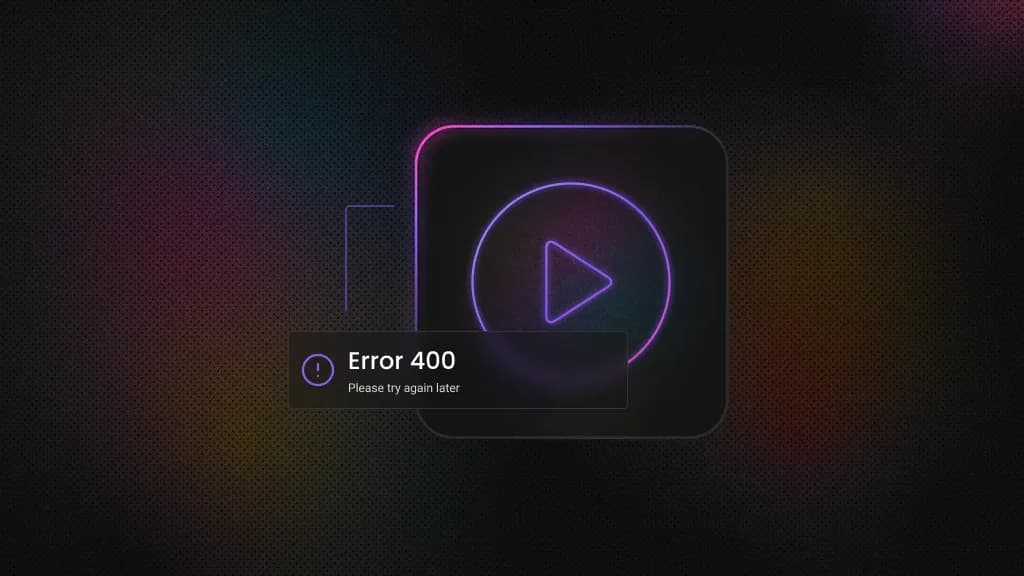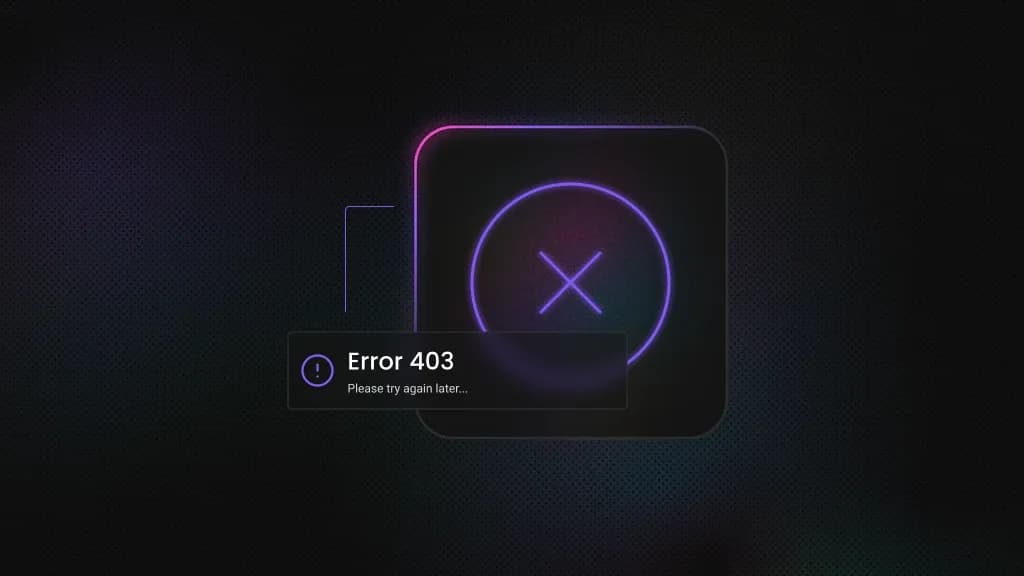What is YouTube Error 429 and How to Fix It: Complete Guide for Users and Developers
Error 429 can hit anyone on YouTube, whether you’re looking for what to watch or collecting video analytics with automated tools. While the causes are different, the frustration of getting blocked is all the same. We'll dive into what this error means, why it happens to both everyday users and professional scrapers, and how to fix it.
Robertas Lisickis
Last updated: Oct 09, 2025
4 min read

What is YouTube error 429?
Error 429 is a rate limit status code that triggers when you send too many requests too quickly. YouTube uses rate limiting to prevent server overload and abuse. The error can pop up on any of your devices, and it’s not exclusive to just YouTube – any platform that uses rate limiting to manage traffic can return a 429.
Why does YouTube error 429 occur?
The cause of the 429 error is rate limiting. Like most major sites, YouTube restricts how many requests can come from a single IP in a short timeframe, blocking traffic once you hit that cap. This can happen to anyone, from casual users refreshing pages too quickly to data teams running high-scale collection scripts.
For regular users, seeing a 429 error is rare, but it can still happen for several reasons. These can include submitting too many requests, network connectivity issues, and even bugs in the platform, browser, or extensions.
But if a technical user runs into the 429 error, it’s likely not a bug, but a feature of the site’s anti-bot system. Automated scripts, scrapers, and poorly configured tools are your main suspects that cause the error.
Common solutions to YouTube error 429
Error 429 is often resolved with basic troubleshooting. You can start with these fixes:
- Check your internet connection. Reconnecting to your network clears temporary connectivity issues.
- Clear your YouTube app or browser cache and data. Old cached files can get corrupted and trigger errors.
- Update the YouTube app or browser. Outdated versions might sometimes have bugs that trigger rate limits.
- Restart your app or device. Force-stopping an app or restarting your device kills any background processes stuck in a request loop.
- Reset device date and time. In rare cases, incorrect time settings can interfere with how requests are processed.
- Try a different network or use a VPN. Switching IP addresses helps identify if your current one is blocked.
- Check for YouTube service outages. If YouTube's servers are having problems, you'll need to wait for them to fix it.
Advanced solutions for fixing YouTube error 429
If error 429 persists, like with larger scraping projects, you might have to get creative with your configurations and solutions. You can try to:
- Throttle request rates. The simplest solution is to reduce the number of requests your scraper sends in a given timeframe. It might slow down your scraping, but at least it doesn’t stop completely.
- Rotate IP addresses or proxies. This is the best way to avoid hitting rate limits. Routing requests through different IP addresses emulates natural site traffic and makes your scraping infrastructure resilient against CAPTCHAs and IP blocks.
- Use headless browsers or advanced scraping tools. These tools are built to mimic a real user's behavior more closely, making it harder for anti-bot systems to detect them.
- Rotate HTTP headers or user agents. Requests that use the same headers and agents are an immediate red flag for anti-bot systems. Switching them up helps avoid detection.
- Go with managed proxy solutions. Dedicated tools that automatically handle proxy rotation, fingerprinting, and other anti-bot measures make data collection more efficient while avoiding blocks like error 429.
Get residential proxies
Use residential proxies with real-device IPs to bypass blocks like YouTube error 429 and keep your scrapers running smoothly.
How to prevent YouTube error 429
Another way of dealing with YouTube error 429 is simply not triggering it in the first place. Here are some best practices that help avoid the error altogether:
- Keep apps and devices updated. This makes sure your software is running smoothly and doesn't have any known bugs that could cause a 429.
- Avoid refreshing pages repeatedly. Don’t spam the refresh button and give the server time to respond properly.
- Browse at a normal speed. Don’t rush through pages, and pace your clicks, so YouTube doesn’t think you’re running a script.
If you're using automated data collection tools, having the right configuration and setup is a must for avoiding rate limits:
- Use delay and back-off strategies. Build a mechanism into your script that waits and retries requests with an increasing delay after an error.
- Track error rates and adapt scripts. Set up monitoring to flag 429 error spikes so you could adjust request rates before getting blocked.
- Use proxies or scraping APIs. Proxies and specialized data collection tools like our Web Scraping API or Video Downloader offer the best line of defense against rate limits.
Get Web Scraping API
Scrape the web with ready-made templates to extract video transcripts, titles, views, channel info, and more.
Final thoughts
Understanding YouTube error 429 comes down to knowing why rate limits exist in the first place and how to work within them. For everyday users, the error is often temporary and easily fixed. Meanwhile, for devs and data teams, it's a sign that your scraping approach needs optimizing.
With big data projects, simply slowing down won’t resolve YouTube's rate limiting problem. You need distributed IPs, browser fingerprints, and proper request management. Whether you build this infrastructure yourself or use proxies and scraping APIs, the goal is the same – consistent data access without blocks.
About the author

Robertas Lisickis
Content Specialist
Robertas brings 10+ years of IT content experience to the table. Here, he focuses on creating tutorials and educational pieces that make technical concepts easier to grasp.
Connect with Robertas via LinkedIn.
All information on Decodo Blog is provided on an as is basis and for informational purposes only. We make no representation and disclaim all liability with respect to your use of any information contained on Decodo Blog or any third-party websites that may belinked therein.

